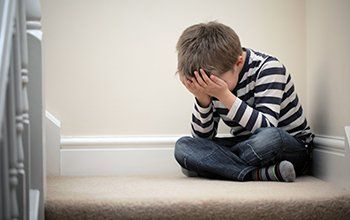Section: Juvenile Diabetes or Diabetes Type II in Children
Audience: Parents
Topics: Management of the Psychological Factors of Childhood Diabetes
My eight year old son loves mood rings—those heat sensitive, color changing rings that turn black if you are cold and supposedly nervous or upset or turn a beautiful shade of purple if you are tranquil and blue if you are in Nirvana---Awe!
My twelve year old is the son with Juvenile Diabetes and quite frankly I wish sometimes that we had a mood ring that would indicate when his blood sugar was about to make him miserably depressed or lethargic. Even more disconcerting is when is blood sugar spikes and so does his anger: irrational rageful moments when no reasoning in the world can get through. Twenty minutes pass and finally, his angry rampage will actually have lowered his blood sugar it seems and my son is back. My reasonable, affectionate and logically kindhearted son returns hardly remembering his cruel words or illogical aggressive gestures.
Before my oldest son was diagnosed with Diabetes, Type I, these moments were very puzzling to say the least. As a parent who adores her children and truly enjoys each moment I have with my sons, these moments of anger or depression seemed so incongruent with his personality and his knowing that he is much loved and supported.
Now that he has been diagnosed, these events of emotional extremes are easily traced to moderate or very high spikes or very sudden lows in his blood sugar. In all the training I have had through our excellent support hospital and the caring and thorough nurses, doctors and teachers, the mood swings associated with Diabetes, Type I in children has never been addressed.
Dr. Francis: Talking with parents on-line, in my office and in support-groups, the effect of high and low blood sugar swings on their otherwise reasonable, loving and usually quite cooperative children is quite frequently discussed.
I am a Clinical Psychologist and one of my specialties is children. I have been working with children, their parents and teachers for over 30 years. Depression, anger, cooperation, ADHD/ADD and academic complications are the most frequent reasons parents seek my assistance. Within the last 15 years, I have noticed a big change in how doctors and parents have become more alert to the impact of foods, sleep, and exercise upon their child’s moods, school performances and helpfulness. Now, as Juvenile Diabetes is more frequently and more easily diagnosed, we can now understand this and other disorders and their impact on a child’s personality, emotionality and behaviors as well.
As parents of children with diabetes, we are not only managing their insulin, blood tests, diet and exercise in order to save their lives and maintain the quality of their physical well-being. We are also managing their diabetes so that their personality and relationships will not be severely impacted by their emotional instability.
We as parents cannot afford to become confused or be personally offended when our diabetic children become irrationally angry, bursting in tears or agitated with worries. We need to harness ourselves during those 20-40 minutes of outbursts and figure out how to manage the moments when no logic, no words and no emotional comfort will have the desired calming impact. When we are able to manage our reactions to our children’s emotional and behavioral reactions to their blood sugar swings, we become more available to assist our children through their mood swings so that all the wonderful moments that will follow will not be destroyed or made worse by our poor reactions to their very difficult emotional outbursts.
No parent who does not manage Juvenile Diabetes can truly appreciate how very difficult it is to passage through these intense, irrational, extreme moments of anger or depression. But rest assured those of us that have wonderful children who are coping with all the management issues associated with diabetes know what you are going through.
Here is some advice for managing the moments so that once your child’s blood sugar returns to normal, so too can your relationship and your household.
First, never take the moment personally. Do not concern yourself with the words, accusations, attacks, or blames that might pour forth during those 20-40 minutes. Please remember that when these blood sugar highs and lows occur, your child’s brain and therefore his/her personality is entirely bathed in chemicals that will trigger the most primitive, emotional and aggressive portions of his/her brain.
Second, manage your child’s words and behaviors in a manner that keeps your other children, you and your spouse at a safe distance especially if impulse controls are temporarily too low to prevent physical aggression from occurring.

